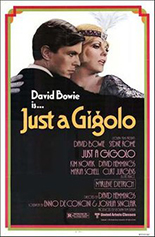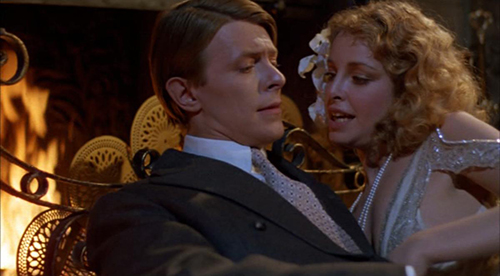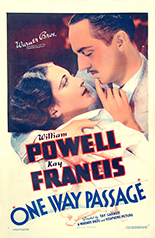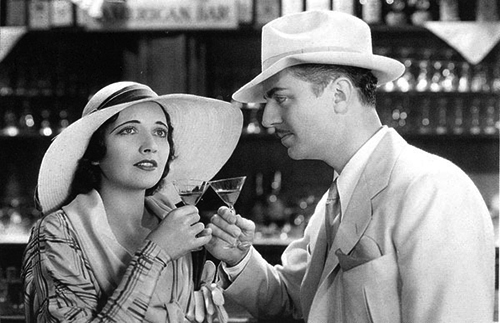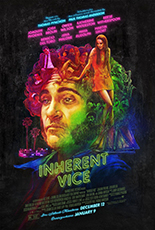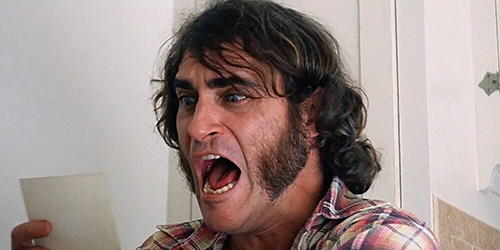
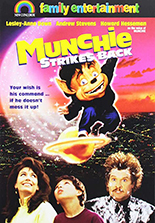 Munchie strikes back in Munchie Strikes Back, in which the butt-ugly alien introduced in 1992’s singular Munchie is now voiced by a thoroughly desperate Howard Hesseman (Private Lessons). In this third entry in Roger Corman’s plural Munchies franchise, Munchie is sent by the gods to befriend Chris, a boy whose dad is dead and whose mom (Lesley-Anne Down, The Pink Panther Strikes Again) just got fired after refusing the sexual advances of her boss, Carlisle. Points to her, considering Carlisle is played by The Seduction’s Andrew Stevens, playing a character different from his Munchie role, yet in the exact same way.
Munchie strikes back in Munchie Strikes Back, in which the butt-ugly alien introduced in 1992’s singular Munchie is now voiced by a thoroughly desperate Howard Hesseman (Private Lessons). In this third entry in Roger Corman’s plural Munchies franchise, Munchie is sent by the gods to befriend Chris, a boy whose dad is dead and whose mom (Lesley-Anne Down, The Pink Panther Strikes Again) just got fired after refusing the sexual advances of her boss, Carlisle. Points to her, considering Carlisle is played by The Seduction’s Andrew Stevens, playing a character different from his Munchie role, yet in the exact same way.
Munchie and Chris (Trenton Knight, The Skateboard Kid 2) become instant pals, even though Munchie — given the ineptness of his puppeteers and the limitations of a Corman budget — stays partially hidden behind beds and in trash cans. Together, they play a Death Race 2000 video game, rig a lawnmower to run amok and cause counterfeit money to rain from the sky. When Carlisle starts nosing around, Munchie sticks firecrackers down the man’s pants, while Carlisle retaliates using potatoes.
In this kiddie film, returning director Jim Wynorski (Sorority House Massacre 2) teaches his young audience some 1990s-style values:
• Money is everything.
• Destruction of personal property is okay if it’s your next-door neighbor’s.
• Car wrecks are really way cool.
• Prune-faced gnomes are to be loved.
In the end, Munchie is sent to help Bill Clinton, as the credits threaten a fourth installment that never came to be: Munchie Hangs Ten. The series should be commended for its commitment to its own mythos, in that each movie contains a scene in which Munchie is captured in a garbage bag. —Rod Lott


